8 Health Benefits Of Copper, Deficiency Signs, & Side Effects
Boost brain, joint, and bone health along with building immunity with this important mineral.
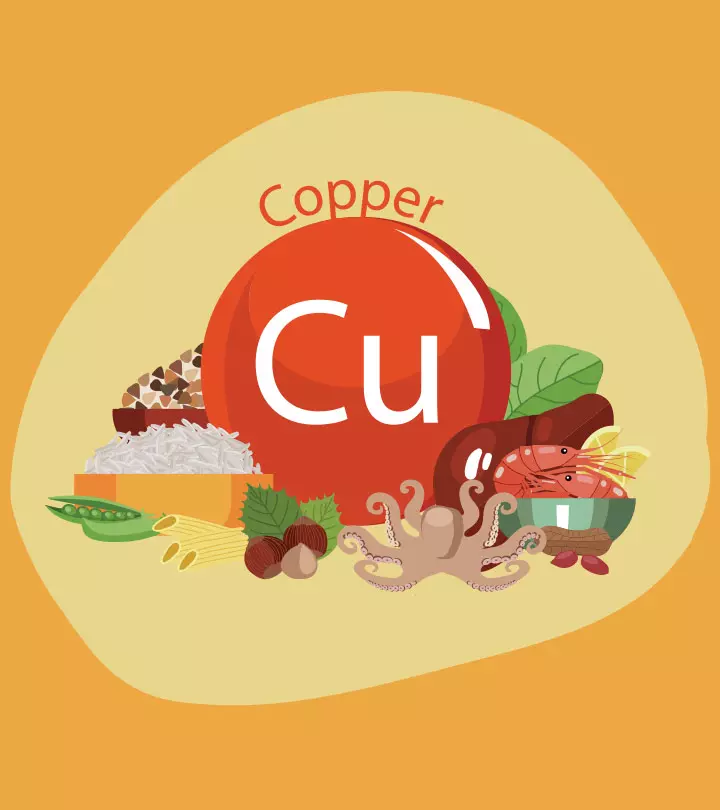
Image: Shutterstock
Copper is known for its conductivity, antimicrobial properties and as one of the major trace minerals that are vital for harmonious bodily functions. But, unfortunately, the varied benefits of copper are not widely known. Did you know that it can effectively combat all neural ailments and enhance brain health? It can also boost your immune system. Learn how copper can improve your overall health and the other benefits it offers from the article below. Scroll down to know more!

In This Article
What’s Up With Copper?
Copper is an essential trace element for humans and other mammals. There are quite a number of ways copper can benefit you. The first of them is it provides energy to the brain and improves the functioning of the nervous system. It also helps in the production of red blood cells – it aids the process and boosts your immunity. It achieves this along with iron.
Copper also contributes to the health of bones, nerves, and even promotes iron absorption (offering an entirely different set of benefits) in a way.
Well, there’s more. Why don’t you just check them out?
Key Takeaways
- Copper may help activate the brain’s neurotransmitters so, copper deficiency may affect brain health.
- Joint dysfunction is a major issue that results from copper deficiency because insufficient copper may lead to the depletion of collagen.
- You need sufficient copper to improve immunity, fertility, growth, and skin and hair health.
- Foods such as beef liver, cashews, almonds, and avocados are rich in copper.
What Are The Health Benefits Of Copper?
1. Boosts Your Brain Health
Copper is one important ingredient of enzymes that activate the brain’s Neurotransmittersi Chemical messengers that carry messages between nerve cells in the brain and nervous system to control various kinds of behaviors and body processes. . New research indicates that adequate copper levels are essential to brain health. The brain takes in 20 percent of the oxygen you inhale. And since most copper in the body is found in the brain, the organ sure needs adequate copper (1).
Neurodegenerationi Progressive loss or harm to the brain's or nervous system's nerve cells, or neurons, which leads to diseases like Parkinson's or Alzheimer's. in adults is often linked to an imbalance in copper levels. Also, the symptoms of copper deficiency include the inability to concentrate, lack of positivity, and poor mood which affects the overall wellness and happiness of a person.
2. Boosts Your Joint And Bone Health
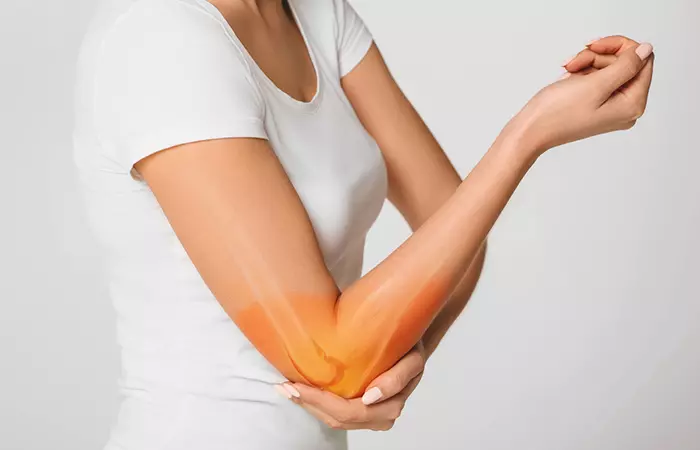
Copper contributes to bone mineral density, and low levels of the mineral can lead to osteoporosis (2). It also plays a role in collagen health, which is an important structural component in our bodies and promotes youthfulness and beauty. Insufficient copper can lead to depletion of collagen, and this eventually results in joint dysfunction.
The anti-inflammatory properties of copper can also ease arthritis pain.
And, by the way, there are some claims going on about copper bracelets and how they can treat joint pains. Proponents claim that the anti-inflammatory properties of the copper in the bracelet can get transferred to the body upon contact. Let me tell you that there is no research to support this claim (3).
3. Strengthens Your Immunity
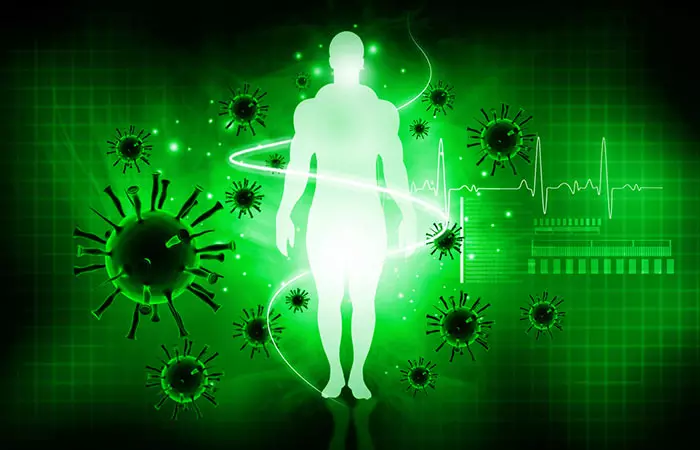
As we discussed earlier, copper, along with iron, helps in the production of red blood cells. This builds your immunity. Deficiency in copper can lead to neutropenia, which is a lower amount of white blood cells – and research says this condition can cause one to fall ill more often as it reduces endurance and delays healing. These effects are more pronounced in infants, which is why they need to have sufficient copper levels more than anyone else (4).
4. Promotes Metabolism
Copper supports over 50 enzymatic reactions that take place in your body on a daily basis. This supports a healthy metabolism.
The mineral also plays a role in the synthesis of ATP, or adenosine triphosphate – which is the body’s source of energy. Which is why deficiency of copper can lead to a sluggish metabolism.
5. Contributes To Proper Growth And Development
Copper deficiency, unfortunately, is quite common in third world countries and is quite visible in children – where kids suffer from stunted growth and other developmental complications. This is because copper deficiency can affect joint and bone development and even the development of the brain.
Additionally, copper is also required for the oxygenation of red blood cells – and low levels of the mineral can mean your organs do not receive adequate levels of oxygen. This can lead to developmental and longevity issues. Studies show that deficiency in copper can also delay growth in infants.
6. Supports Your Thyroid Health
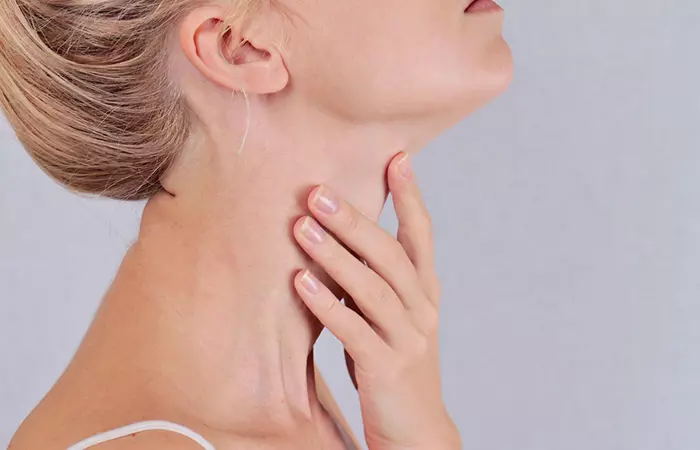
Copper works with potassium, zinc, calcium, and potassium (essential nutrients for thyroid health) and promotes thyroid health. As a result, it can help prevent conditions like hypothyroidism or hyperthyroidismi A condition characterized by an overactive thyroid gland that accelerates metabolism and causes weight loss, hand tremors, etc. .
Studies suggest that how the metabolism of copper is essential to prevent or manage thyroid disease (5).
7. Delays Aging

Studies show that copper is as important to anti-aging as retinol and alpha hydroxy acidsi A class of chemical compounds used in various skin care products that have anti-aging and exfoliating properties. . And then, there are copper peptides, a copper complex that can reduce inflammation and keep the skin looking younger and fresher. Since copper helps build collagen, and since collagen is also important to maintain skin elasticity, it should be safe to say that copper can improve skin firmness and reduce wrinkles.
Studies also state that copper stabilizes skin proteins, improving the overall skin health and vitality (6). It also helps in the production of melanin, which is the pigment that protects your skin from UV radiation.
8. Copper Can Boost Your Hair Health
Copper peptides are also known to increase the size of the hair follicles and subsequently stop hair thinning and provide strength to the strands. And since copper helps in the production of melanin, it can even prevent premature graying of hair.
These are the benefits of copper. These tell us how important the trace mineral is, don’t they? It is important to keep copper levels balanced for your overall well-being. Including copper-rich foods in your diet is key to enjoying these health benefits. Inadequate levels of this mineral can lead to complications. Let’s see what they are.
What Are The Signs Of Copper Deficiency?

Deficiency of copper can lead to the following issues:
- Anemiai A condition where the body produces insufficient amounts of hemoglobin or healthy red blood cells, which reduces the amount of oxygen that reaches tissues.
- Bone fractures
- Thyroid issues
- Osteoporosisi A condition where bones become weaker and more brittle with time, increasing the risk of fractures as bone density and strength decline.
- Loss of pigmentation of hair and skin
- Menkes disease (neurodevelopmental delays in infants)
The only way to prevent copper deficiency is by ensuring you take enough of it. This takes us to the next section where we share a useful list of foods high in copper.
What Are The Foods Rich In Copper?
The RDA of copper is 900 mcg a day for both adults and adolescents. And the upper limit is 10 mg per day. Keeping that in mind, you can include the following foods in your diet as required:
- Beef liver – 1 oz contains 2.89 mg of copper (7).
- Mushrooms (shitake) – 100 grams contain 0.05 mg of copper (8)
- Cashews – 100 grams of cashews contain 2.22 mg of copper (9).
- Kale – 1 cup (raw) of kale contains 0.011 mg of copper (10).
- Cocoa powder – 1 tablespoon (unsweetened) contains 0.205 mg (11).
- Almonds – 1 oz contains 0.29 mg, which meets 41% of the RDA (12).
- Avocado – 100 mg fruit contains 0.285 mg of copper (13).
- Dark chocolate – 1 oz contains 0.501 mg, which meets 56% of the RDA (14).
Cocoa is considered an excellent source of dietary copper. Researchers studied Hershey’s pure cocoa as it is rich in copper. This particular chocolate contains 3.8 mg of copper per 100 g of cocoa. A study involving 86 patients found that those with severely low serum copper levels (below 20 micrograms/dl) were given 30-45 g of cocoa daily, while those with slightly higher levels (20-77 mg/dl) received 10 g of cocoa each day. The results found that serum copper levels increased significantly with cocoa supplementation. This may improve the symptoms of anemia and neutropenia associated with copper deficiency. The study further suggested that the high copper content in cocoa may help treat copper deficiency in individuals on long-term enteral nutrition (8).
 Quick Tip
Quick TipAll good. But do you know that excess copper in your body can cause issues?
What Are The Side Effects Of Excess Copper?
- Issues During Pregnancy And Breastfeeding
Taking copper in higher doses during pregnancy and breastfeeding can be unsafe (16). Pregnant women above 19 years of age must take no more than 10 mg of copper a day.
- Wilson’s Disease
Excess copper levels in the body can lead to copper toxicity, which can affect the major organs of the body (17).
- Other Side Effects
Headache, dizziness, weakness, Liver cirrhosisi A chronic liver disease affects the liver's capacity to function normally by causing scar tissue to replace good liver tissue eventually. , and jaundice (18).
- Drug Interactions
Excess copper, especially in the supplemental form, can interact with birth control pills, NSAIDs like aspirin and ibuprofen, penicillaminei A medication that binds to the excess copper in the body and leads it to leave through urine. , allopurinol, and other zinc supplements (19).
Therefore, supplementation of copper should only be considered after consulting a healthcare provider. It will help you determine the dosage based on your health condition.
 Quick Tip
Quick TipInfographic: Important Benefits Of Copper
Copper is an essential mineral for your overall well-being. It plays a vital role in numerous body functions, from boosting the immune system to aiding collagen production. Check out the infographic below to know more about the most important health benefits of copper.
Some thing wrong with infographic shortcode. please verify shortcode syntaxAlthough the benefits of copper are wide-ranging, they are often not talked about. From enhancing the brain and bone health and immunity to increasing metabolism and slowing down premature aging, this trace mineral can work wonders for your body. More importantly, it plays a role in thyroid health, preventing conditions like hypo and hyperthyroidism. So, make sure you take 900 mcg of copper a day by consuming foods like beef liver, mushrooms, cashews, kale, cocoa powder, almonds, avocado, etc.
However, you cannot take more than 10 mg of copper a day. Otherwise, you may end up experiencing side effects like Wilson’s disease and drug interactions. So, practice caution.
Frequently Asked Questions
What are the symptoms of copper deficiency?
The symptoms of copper deficiency are severe fatigue, pale skin, high cholesterol levels, and problems with connective tissues, such as in the skin and ligaments. It can also cause brittle bones, difficulty with balance and coordination, and a higher risk of infections (7).
Can I get enough copper from my diet?
Yes, you can get enough copper from a balanced diet. Foods like nuts, seeds, seafood, whole grains, and leafy greens are rich in copper, helping you meet your daily needs (7).
Is coffee high in copper?
No, coffee is not high in copper. It contains negligible amounts of copper at 0.4 μg for every 100 ml.
Are eggs high in copper?
Eggs have a decent amount of copper. Hundred grams of hard boiled eggs contain 0.013 mg of copper.
Does drinking water in a copper vessel have any benefits?
Yes, anecdotal evidence suggests that drinking water in a copper vessel has numerous benefits, like improved digestion, weight loss, and hypertension control. It may be possible as storing water in a copper vessel for a few hours can help purify the water (9) and aid suitable amounts of copper to leach into it. While this is highly practiced in Ayurveda, there are no relevant scientific studies to support the practice.
Illustration: Health Benefits Of Copper, Deficiency Signs, & Side Effects
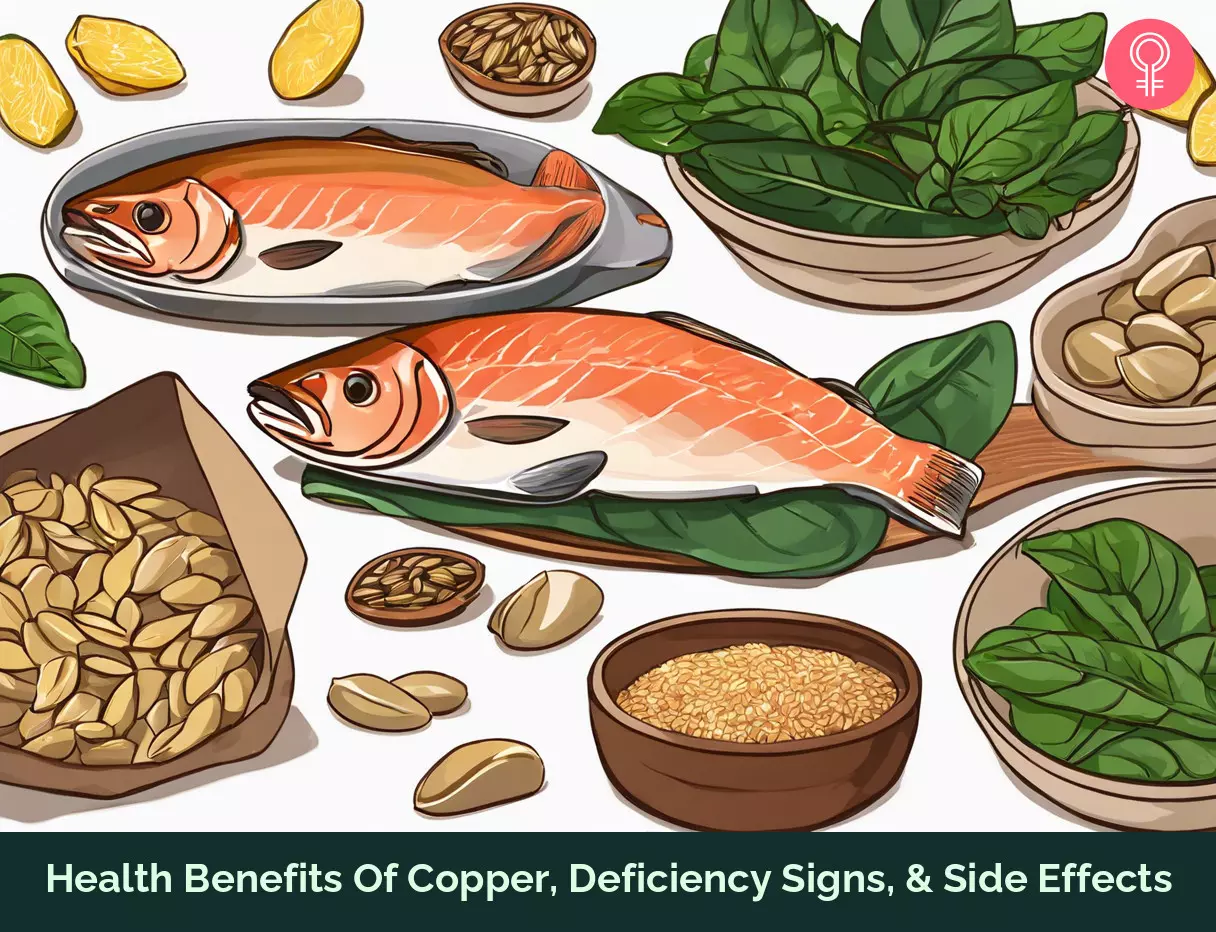
Image: Stable Diffusion/StyleCraze Design Team
Discover the amazing benefits of copper that no one ever talks about! Learn how copper can improve your health and wellbeing. Watch the video to learn more.
References
Articles on StyleCraze are backed by verified information from peer-reviewed and academic research papers, reputed organizations, research institutions, and medical associations to ensure accuracy and relevance. Read our editorial policy to learn more.
- “Copper signaling in the brain and beyond”. US National Library of Medicine.
- “Mechanisms for copper acquisition…”. US National Library of Medicine.
- “Copper bracelets and magnetic wrist…”. US National Library of Medicine.
- “Copper”. Oregon State University.
- “Zinc, copper, manganese…”. US National Library of Medicine.
- “Using copper to improve the…”. US National Library of Medicine.
- “Liver, beef” U.S. Department of Agriculture.
- “Mushrooms, shiitake” U.S. Department of Agriculture.
- “Nuts, cashew nuts, raw” U.S. Department of Agriculture.
- “Kale, raw” U.S. Department of Agriculture.
- “Cocoa, dry powder, unsweetened” U.S. Department of Agriculture.
- “Nuts, almonds” U.S. Department of Agriculture.
- “Nuts, almonds” U.S. Department of Agriculture.
- “Avocado, Hass, peeled, raw” U.S. Department of Agriculture.
- “Copper” US National Library of Medicine.
- “Copper supplement with cocoa for copper deficiency in patients with long-term enteral nutrition” US National Library of Medicine.
- “A Case of Isolated Elevated Copper Levels during Pregnancy” US National Library of Medicine.
- “Wilson’s disease and other neurological copper disorders” US National Library of Medicine.
- “Health Effects of Excess Copper” US National Library of Medicine.
- “Interaction of copper(II) with the non-steroidal anti-inflammatory drugs naproxen and diclofenac: synthesis, structure, DNA- and albumin-binding” US National Library of Medicine.
- “Storing drinking-water in copper pots kills contaminating diarrhoeagenic bacteria” US National Library of Medicine.
Read full bio of Dr. Abby Kramer
Read full bio of Ravi Teja Tadimalla
Read full bio of Arshiya Syeda
Read full bio of Aparna Mallampalli







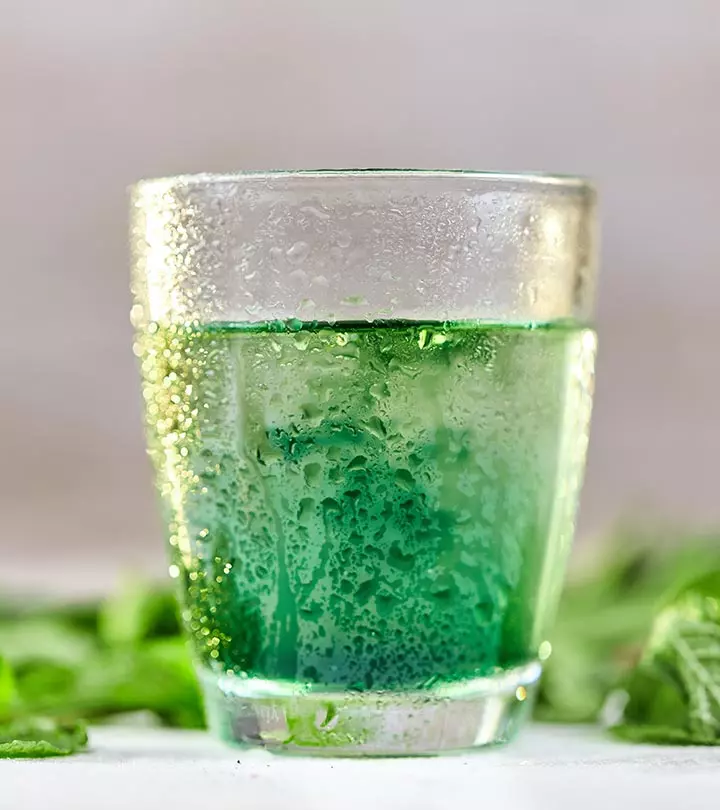


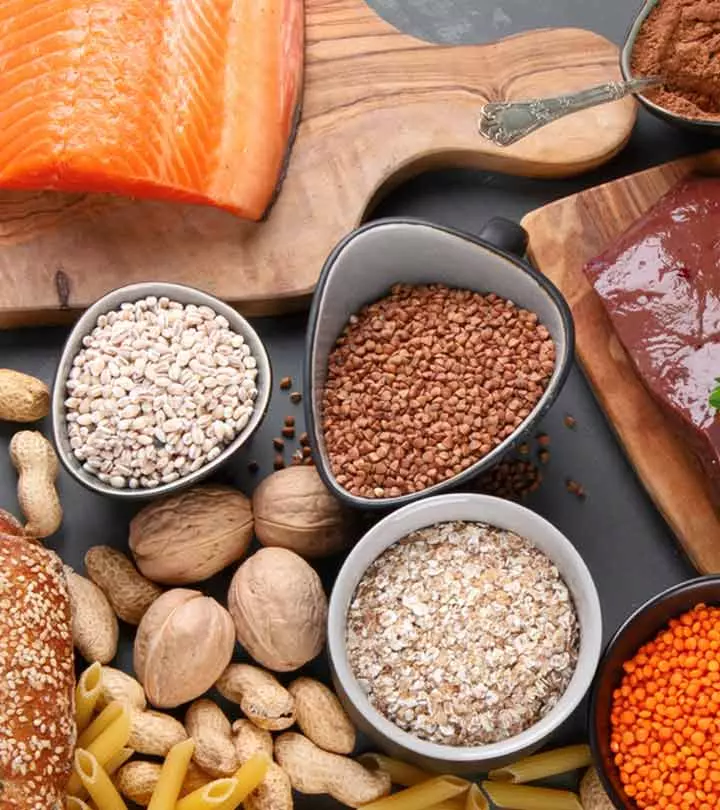


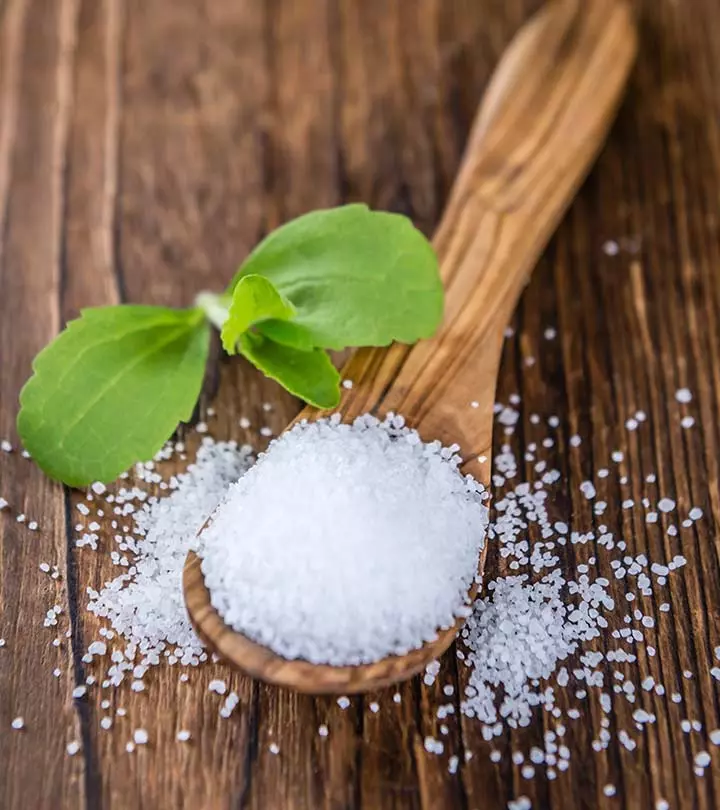
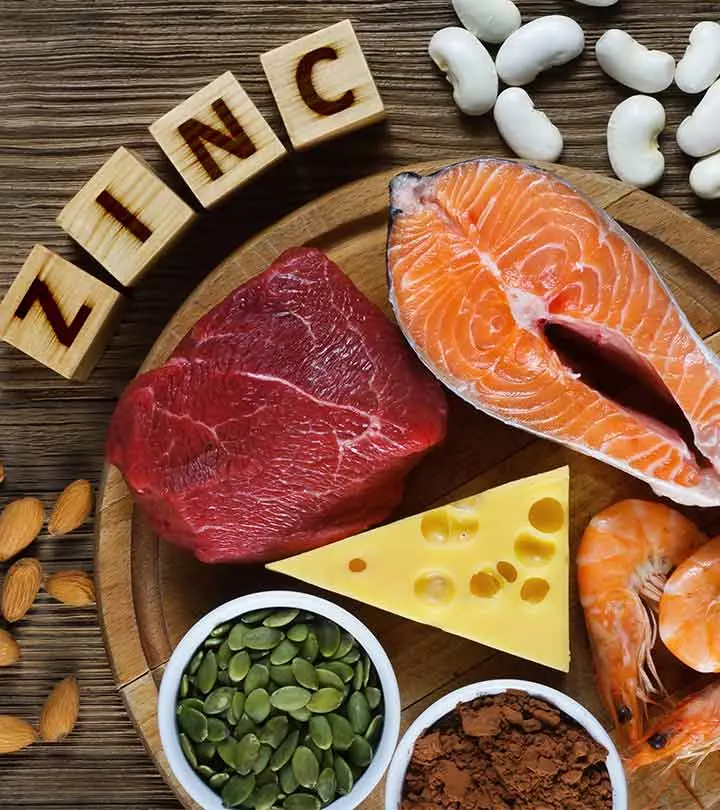



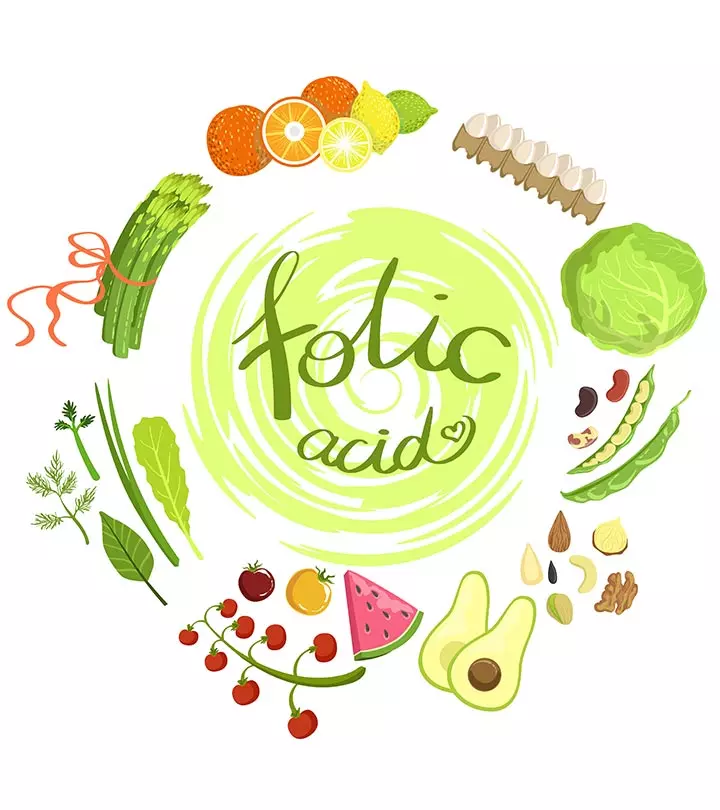
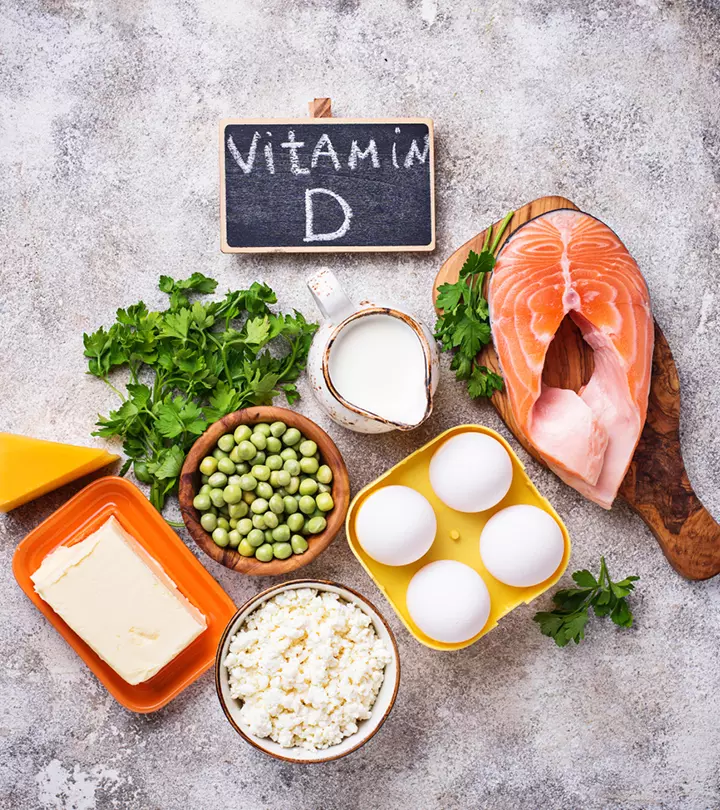
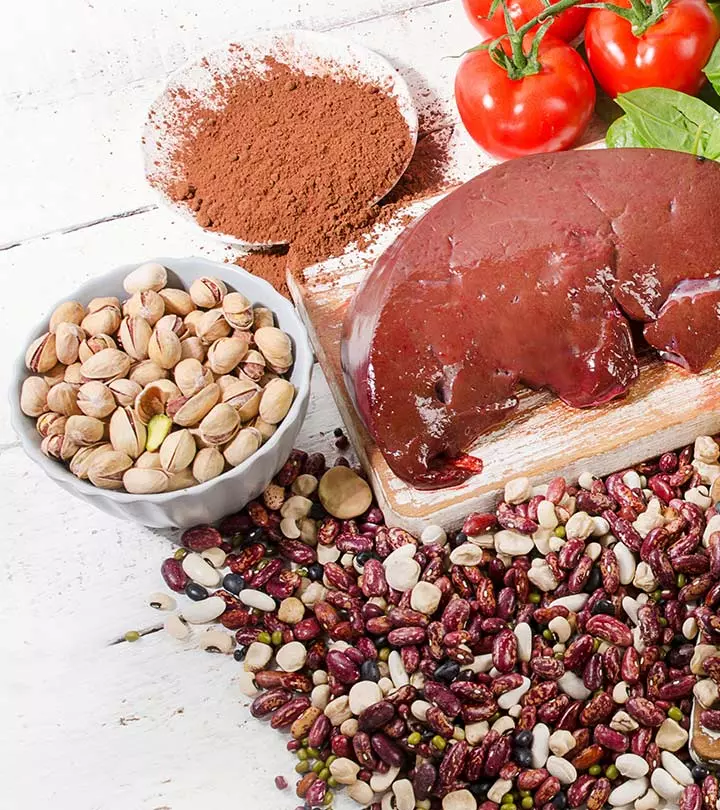

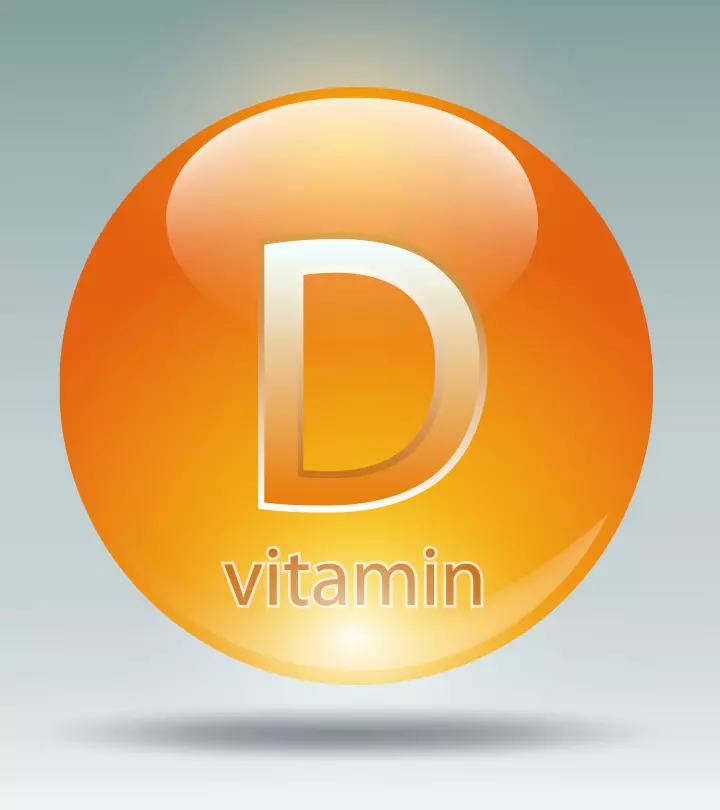
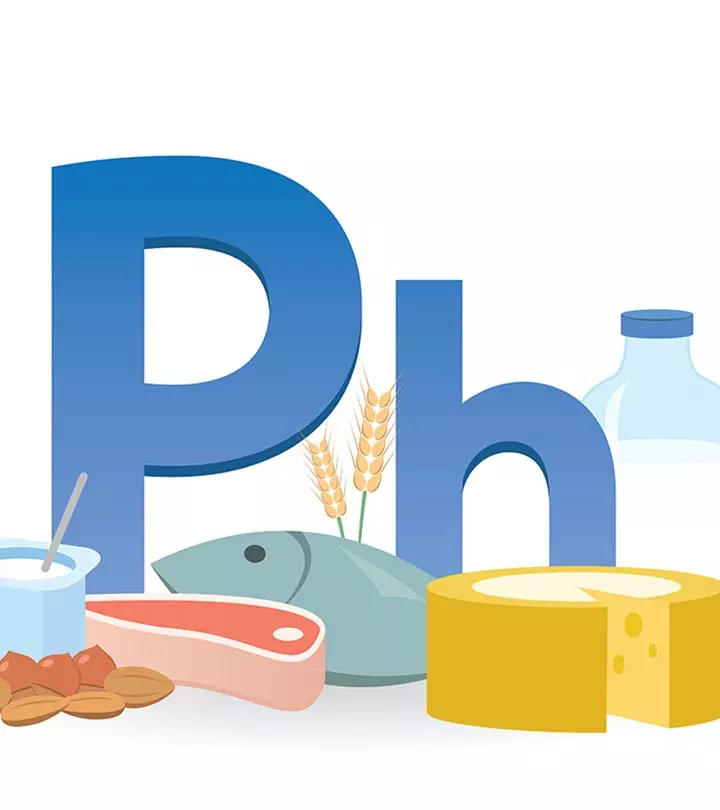
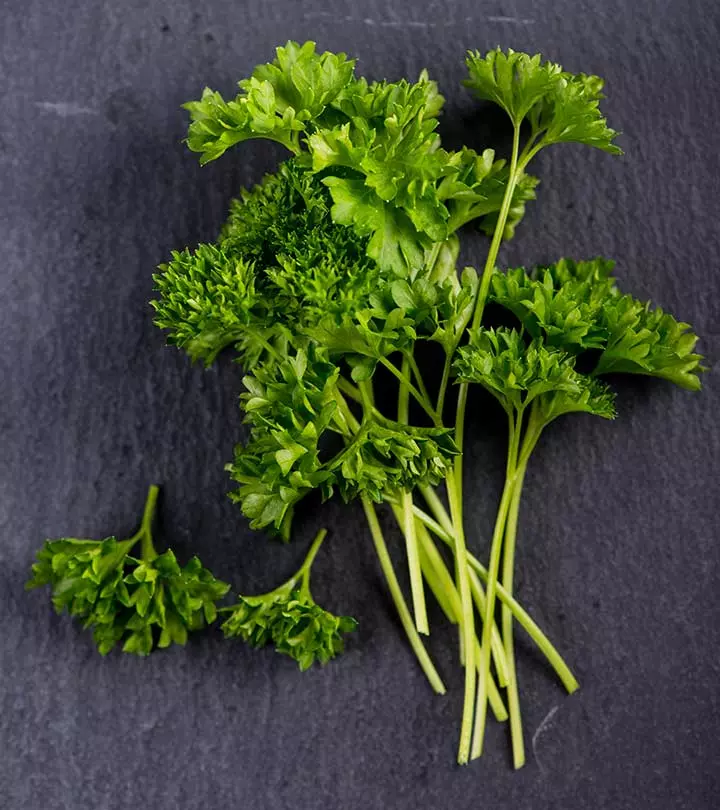

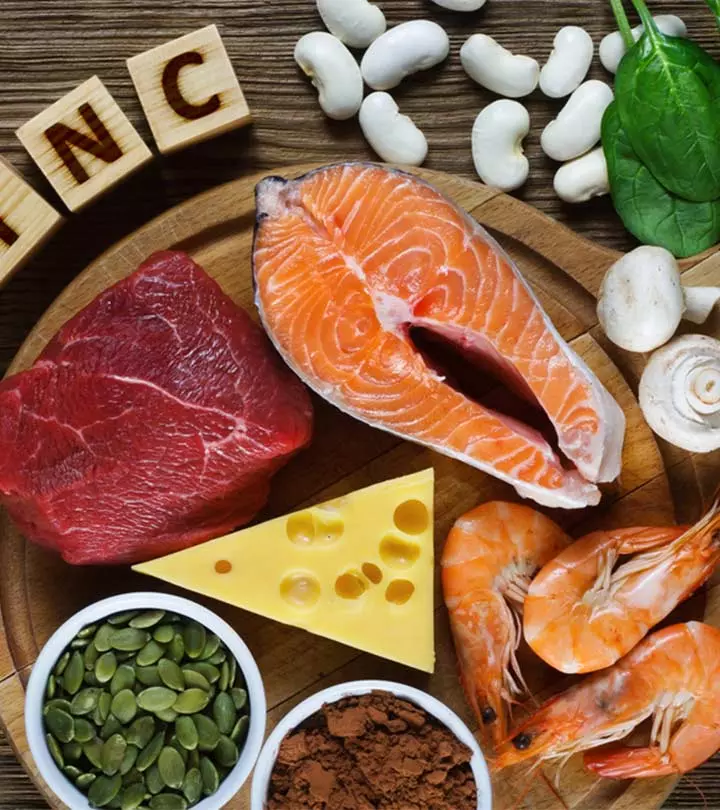
Community Experiences
Join the conversation and become a part of our empowering community! Share your stories, experiences, and insights to connect with other beauty, lifestyle, and health enthusiasts.